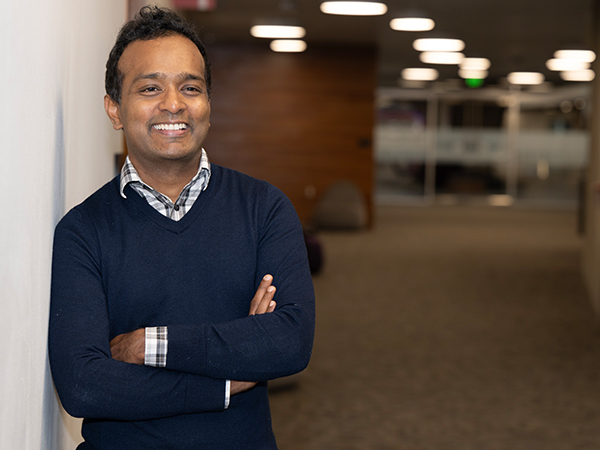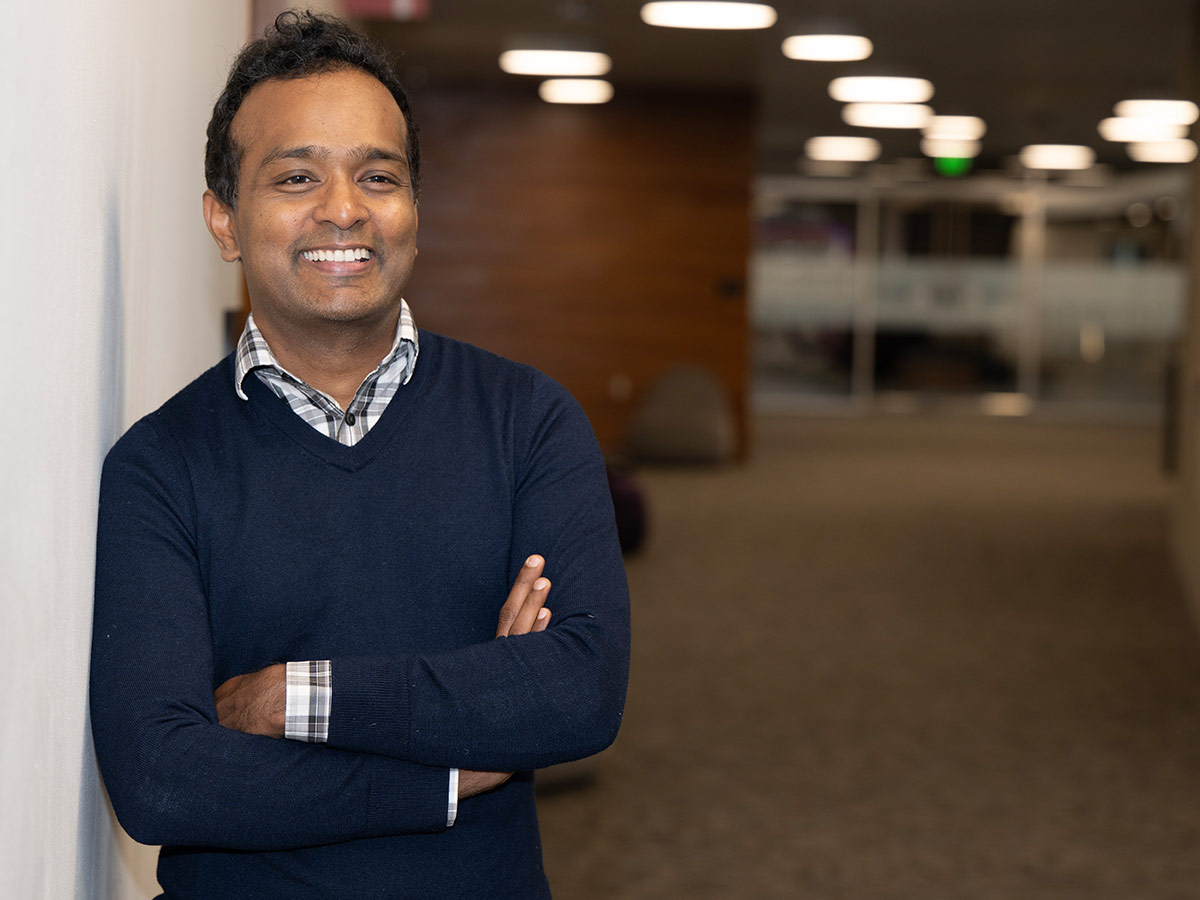The Infosys Prize 2024 in Engineering and Computer Science is awarded to Prof. Shyam Gollakota for his impactful research and technology translation spanning multiple engineering domains in societally relevant areas such as smart-phone based affordable healthcare tools for low- and middle-income countries, battery-free computing and communication, and augmentation of human auditory sensing with artificial intelligence.
Infographic:
Flying computers and life-saving smart phones: The magic of translational research
Scope and Impact of Work
Prof. Shyam Gollakota has done game-changing work on “programmable sound” that has impacted multiple diagnostics areas. His group introduced the idea of transforming smart devices into active sonar systems for contactless physiological sensing. This was a truly remarkable idea since before this the only way to do wireless contactless sensing was by using radio-frequency devices. Using microphones and speakers on smart devices, Prof. Gollakota demonstrated that he could create an active sonar system that emits inaudible sound signals from the phone and that analyzes the reflections to detect minute breathing motion. Since every commodity device has a microphone and a speaker, this method can scale to billions of devices using just software.
Shyam Gollakota has also pioneered the augmentation of human auditory perception with artificial intelligence. This technology will allow us to program our acoustic scenes so that we can focus on specific sounds or remove unwanted ones based on their semantic descriptions. This capability entails understanding and manipulating an acoustic scene, isolating each sound and associating a 2D spatial context or semantic meaning with each individual sound — a formidable challenge even for the human brain.
Gollakota has been a pioneer of battery-free communications using ambient backscatter. Here, wireless devices reflect ambient signals to communicate, reducing energy consumption. This work has enabled battery-free devices ranging from cell phones and cameras to underwater Wi-Fi and powerline networks and has created completely new research directions in mobile and wireless communication.
Bio
Shyam Gollakota is Washington Research Foundation and Thomas J. Cable Endowed Professor and leads the Mobile Intelligence Lab at the University of Washington's Paul G. Allen School of Computer Science and Engineering. His research addresses machine learning for mobile systems, mobile health, networking, human-computer interaction and battery-free computing, among others.
Prof. Gollakota is the recipient of the National Science Foundation CAREER Award, the Alfred P. Sloan Fellowship, the SIGMOBILE Rockstar award and the ACM Grace Murray Hopper Award, and was recently named a Moore Inventor Fellow. He was also named to the MIT Technology Review’s 35 Innovators Under 35 list, twice to the Forbes’ 30 Under 30 list and as one of the Popular Science ‘Brilliant 10’. He graduated from IIT-Madras and MIT, where his Ph.D. dissertation won the ACM doctoral dissertation award.
Timeline
Jury Citation
Prof. Shyam Gollakota is a pioneer in mobile systems whose work has been intellectually deep, highly influential in the research community, and hugely impactful in society at large. He has done foundational work in using ambient backscatter to develop battery-free wireless communications that has established new directions for the wireless and mobile community. Prof. Gollakota has turned the smartphone into a powerful device for medical diagnostics and his work on contactless physiological sensing is used by millions of patients. Most recently, he has worked on augmenting the human auditory sense with artificial intelligence, enabling the user to amplify specific environmental sounds and muting others. Such extraordinary capabilities may well become commonplace in billions of earbuds and hearing aids in the years to come. Shyam Gollakota is a proven thought leader, and his work will continue to transform computing.

Shyam Gollakota
Congratulations to Prof. Shyam Gollakota on winning the Infosys Prize 2024 for Engineering and Computer Science. His work on mobile and wireless communications is game-changing. Particularly impressive is his work on active sonar systems for physiological sensing, battery-free communications and the use of AI to selectively tailor acoustic landscapes. These innovations will continue to benefit humanity for years to come.



